The present work brings to the reader a collection of some immortal hymns of the outstanding bard that are sung in the gurdwaras and congregations by Sikhs and non-Sikhs alike across the globe. The great soul that he was, Kabir epitomized the Oneness of God and the equality of mankind. He was virulent critic of the absurdities of the caste system and ridiculed the prevalent notion that the status of an individual was the outcome of the caste or class in which he was born. Truthfulness and clean living were the cornerstones of Kabir’s philosophy of reality and existence. For him, a meaningful life was one that was devoted to the Creator, and he ever repeated His Name. Kabir was hard on the so-called high and mighty of the society-be it the Hindu Brahmins or the Muslim clergy-who propagated but seldom practiced what they professed. Complete and absolute faith in the Supreme Being was the core of his belief. Apart from what has traveled from mouth to mouth in the annals of history, Kabir’s hymns are recorded in Kabir Granthavali and Sri Guru Granth Sahib. REVIEW by Raja Ramanna SO SPAKE KABIRA Translated by K.S. Duggal I was gifted with a copy of the set of poems by Kabir, translated into English by the well known Sikh writer, poet and philosopher Dr. Kartar Singh Duggal. My first reaction was to ask myself how come poems with such beautiful thought had not come to my notice till so late in my life. I decided to popularize the work, in a book review, as the saying of Kabir contain thoughts of deep important and for many from the South it is like a discovery of a new kingdom. The introduction to the translations by Duggal himself is most revealing. I, having been brought up in a Bhakti atmosphere and a Christian school background, was surprised at the modernity of Kabir’s thoughts, as one would have believed that they would al belong to medieval and Gangetic India. The work of Duggal has recreated Kabir for us forcefully and effectively in the English language, a language except for reasons historical, that is so very foreign to us. In any case it has cleared my mind of many wrong impression. I had of Kabir. He was not merely Bhakti poet, par excellence, in love with Raman and the Ramayana, the Vedas and the Purans, he was a Muslim and a thinker of great depth, summarizing the philosophical thoughts of ancient India in a manner that amazes the reader. It is critical of the excesses of the times but even in translation, the deep love o humanity comes in out cries for reform. It has none of the Bhakti clichés but every word makes one think of what this craving for God really means to all of us. We the Hindus have always wondered how the old Vedantic religion has survived over many millennia with its superstitions and rituals together with the advent of the younger religions like Islam and Christianity. The mumblings of Sanskrit verse during puja at temples by themselves could not have satisfied everybody, though the superb phonetics of the great language is a powerful base for religious inspiration. A typical example of this is the 10th century Bhakti poem ‘Mukundamala’ by Kulashekara Alwar. It is a bhakti poem of exquisite phonetic beauty. This by itself could not have been sufficient to keep the fold together but it does exactly this. It is Bhakti literature with its self-analysis which reaches its great heights in Kabir and is the real basis its everlasting inspiration which has preserved Indian culture. It forms a protective cover from all foreign influences right up to the time of vigorous conversions by Victorian missionaries when every attempt was made to displace the existing religio-social structure including the old Syrian Christian systems which came to India long before Europe became Christian. Obviously, Kabir had a strong sense of humour. The verse I quote on page 4, kept me laughing for a long time. If by remaining robeless one were to find liberation. The deer in the jungle would attain salvation. Remaining naked or covering oneself with skin Is no use if the Lord is not within. (1) If shearing the head attained occult powers, The sheep would not without nirvana hover (2) If celibacy helped cruise the ocean, The hermaphrodite must attain salvation (3) Says Kabir, listen ye brother! Without His Name there is no way other. (4)†I stopped after reading this verse, I thank Dr. Duggal for the opportunity to enjoy sharing the thoughts of Kabir with all the readers particularly because of its modern thoughts reflected and the spirit of Kabir as it was expressed in his time. Raja Ramanna was Director Emeritus at the National Institute of Advanced Studies, Bangalore.
So Spake Kabira
$34.20
$38.00
In stock
Free & Quick Delivery Worldwide
All orders amounting to US$ 50 or more qualify for Free Delivery Worldwide. For orders less than US$ 50, we offer Standard Delivery at $14 per book.
ABOUT THE AUTHOR Kartar Singh Duggal
Kartar singh (K.S.) Duggal, born in 1917, begin wiriting while still a student. He is an author of repute in Punjabi, Urdu, Hindi, and English. His works have been translated into many other languages, and are used in literature classes in a larger number of colleges and universities throughout the world. His published works include twenty-one collections of short stories, seven novels, seven plays, and two collections of poetry. He has received numerous awards and prizes for his writing, including the Ghalib Award for Urdu Dhama (1976), the Soviet Land Nehru Award (1981), the Fellowship of the Punjabi Sahitya Academy (1983), and the Bhartya Bhasha Parishad Award (1985). His short story, “Come Back My Master†is included in the Greatest Short Stories of the World. He was recognized by both the Punjabi government (1962) and the Delhi Administration (1976) as a distinquished man-of-letters and awarded a “Robe of Honour.†His collection of short stories, ik Cbbit Chanam Di, won the Sahita Academi award in 1965. Mr. Duggal also served as Director of the All-India Radio from 1942 to 1966, as Director of the National Book Trust form 1966-1973, and was an Advisor (Information) to the Planning Commission from 1973 to 1976. He has worked to encourage and promote literature and the arts throughout his life. He also served as a columnist for The Indian Express. The Tribune, and The Indian Book Industry, as a commentator or books, author, radio, and television programs and the contemporary publishing scene in India.
reviews
0 in total
Review by Anonymous
Be the first to review “So Spake Kabira” Cancel reply
You must be logged in to post a review.
Bibliographic information
Title
So Spake Kabira
Author
Edition
1st ed.
Publisher
ISBN
8174763767
Length
201p.
Subjects
more by Kartar Singh Duggal see more
similar bookssee more
The Philosophy of Buddhism: Die Philosophie des Buddhismus
The translation of Erich ...
$45.00
$50.00

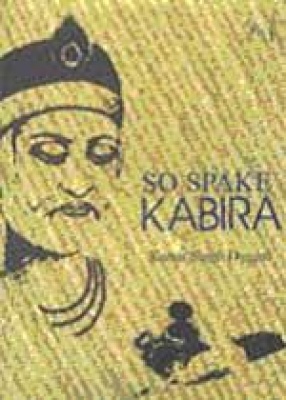
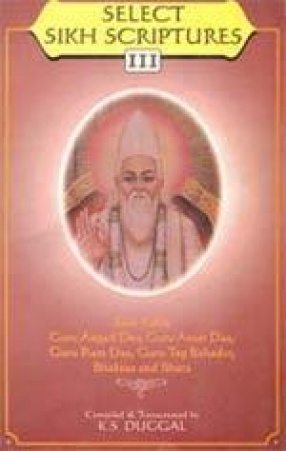
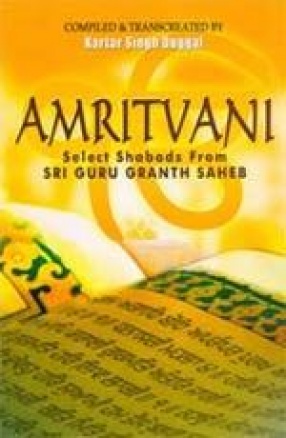
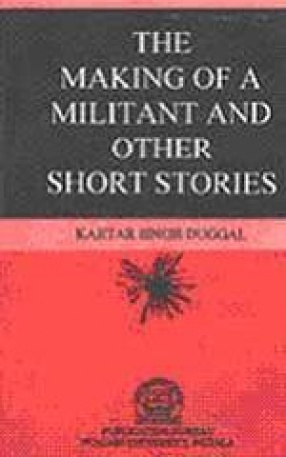
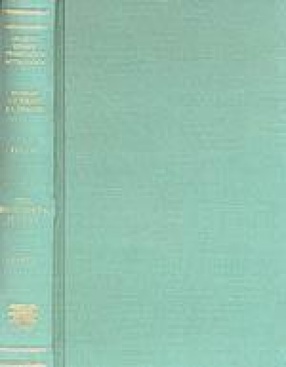
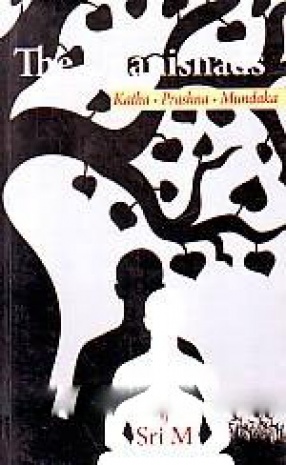
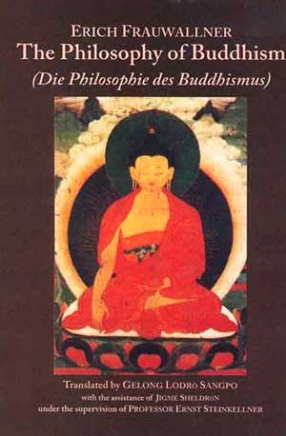
There are no reviews yet.